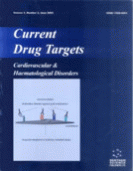Abstract
Endothelial dysfunction is a feature of a variety of clinical states of insulin resistance,and increasingly it is recognized that pre-diabetic states of insulin resistance are associated not only with insulin resistance but with increased cardiovascular risk.The metabolic syndrome which typically accompanies insulin resistance brings aberrations in a number of classical cardiovascular risk factors,but it appears that insulin resistance itself represents an additional,non-classical risk factor.Therefore,the approach to treating the endothelium in patients with the metabolic syndrome might include therapies targeting insulin resistance. In this review,we provide a detailed overview of the current state of knowledge regarding the biguanide metformin and its effects on the endothelium.Its mode of action is reviewed,along with the available data from laboratory and experimental studies related to vascular function in animals and in humans.Metformin has beneficial effects on endothelial function which appear to be mediated through its effects to improve insulin resistance.Therapeutically targeting insulin resistance appears to be a viable route to improving endothelial function in clinical states of insulin resistance.
Keywords: insulin resistance, metabolic syndrome, endothelium, insulin, endothelin, metformin
 13
13













